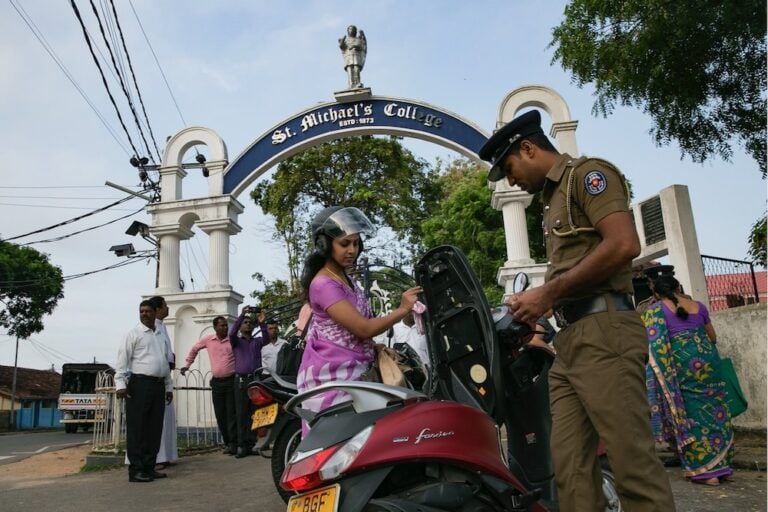In a 7 April 2000 letter to Post, Telecommunications and Media Minister Mangala Samaraweera, RSF protested an assault on a correspondent of the international radio station British Broadcasting Corporation (BBC) World Service. The assault occurred during a demonstration by opponents of the peace talks between the government and Tamil independence campaigners. RSF asked Samaraweera to […]
In a 7 April 2000 letter to Post, Telecommunications and Media Minister Mangala Samaraweera, RSF protested an assault on a correspondent of the international radio station British Broadcasting Corporation (BBC) World Service. The assault occurred during a demonstration by opponents of the peace talks between the government and Tamil independence campaigners. RSF asked Samaraweera to do everything possible to identify and punish those responsible for the attack, and reminded him that it was “his duty as minister to protect foreign and Sri Lankan journalists who were only trying to exercise their profession”. Finally, Robert Ménard, RSF’s secretary-general, expressed concern about the climate of violence in which the press has to work. On 3 April, a journalist from a Tamil daily escaped a murder attempt (see IFEX alert of 4 April 2000).
According to the information collected by RSF, on 6 April, Elmo Fernando, correspondent in Colombo for the Sinhalese service of the BBC World Service, was assaulted during a demonstration organised by the National Movement Against Terrorism (NMAT) and Sinhalese extremist organisations. Those organisations are opposed to the peace talks between the authorities and Tamil independence campaigners, especially the LTTE. The journalist was first insulted while covering the demonstration. Some demonstrators shouted slogans against the BBC, which they accused of supporting the Tamil movements. Fernando was then attacked by a group of militants. A number of journalists intervened to protect him. All the reporters refused to cover the end of the rally in order to protest against the assault.


